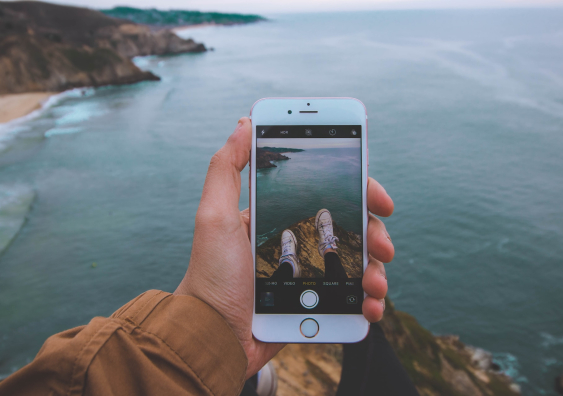In recent weeks, the implemented a policy requiring all university, technical training, or exchange program visa applicants to disclose their social media handles used over the past five years. The policy also requires these applicants to .
This move is an example of governments treating a person’s as their political identity. In doing so, they risk punishing lawful expression, targeting minority voices, and redefining who gets to cross borders based on how they behave online.
Anyone seeking one of these visas will have their social media searched for “” towards the citizens, culture or founding principles of the United States. This enhanced vetting is supposed to ensure the US does not admit anyone who may be deemed a threat.
However, this policy changes how a person’s online presence is evaluated in visa applications and concerns. These include concerns around privacy, freedom of expression, and the politicisation of digital identities.
Digital profiling
The Trump administration has previously taken aim at with the goal of changing the , including making changes to and the .
Digital rights advocates have expressed concerns this new requirement could lead to .
It is unknown exactly which specific online actions will trigger a visa refusal, as the US government hasn’t disclosed detailed criteria. However, guidance to consular officers indicates that digital behaviour suggesting “hostility” toward the US or its values may be grounds for concern.
suggests officers are trained to look for social media content that may reflect extremist views, criminal associations or ideological opposition to the US.
Political ‘passport’
In a sense, this policy turns a visa applicant’s online presence into a kind of . It allows for not just of past behaviour but also of ideological views.
is not just a technical construct. It carries legal, philosophical and historical weight. It can influence access to rights, recognition and legitimacy, both online and offline.
Once this identity is interpreted by state institutions, it can become a shaped by institutional whims. Governments justify digital surveillance as a way to spot threats. But research consistently shows it .
A recent found that US social media monitoring programs have frequently flagged activists and religious minorities. It also found the programs lacked transparency and oversight.
Digital freedom nonprofit has warned these tools risk punishing people for lawful expression or for simply being connected to certain communities.
in integrating digital surveillance into border security. China has implemented . And the United Kingdom is exploring for immigration control. There are even calls for Australia to facilitate digital border checks.
The United Nations has raised concerns about the at borders, especially when used without judicial oversight or transparency.
A free speech issue
These new checks could have a . This is particularly true for those with views that don’t align with governments or who are from minority backgrounds.
We’ve seen this previously. After whistleblower revealed widespread use of data gathering by US intelligence agencies, politically sensitive Wikipedia articles. Not because they were told to, but because they .
This policy won’t just affect visa applicants. It could shift how people use social media in general. That’s because there is no clear rulebook for what counts as “acceptable”. And when no one knows where the line is, people .
What can you do?
If you think you might apply for an affected visa in the future, here are some tips.
1. Audit your social media history now. Old posts, “likes” or follows from years ago may be reviewed and judged out of context. Review your public posts on platforms such as Instagram, Facebook and X. Delete or archive anything that might be misconstrued.
2. Separate personal and professional online identities. Consider keeping distinct accounts for private and public engagement. Use pseudonyms for creative or informal content. Immigration authorities are far less likely to misinterpret context when your online presence is clearly tied to your educational or professional goals.
3. Understand your online visibility and history. Even if you have privacy settings enabled, tagged content, public “likes”, comments and follows can still be seen. Algorithms expose content based on associations, not just what you post. Don’t assume your visibility is limited to your followers.
4. Keep records of any deleted or misinterpreted posts. If you think something might be questioned or if you delete posts ahead of an application, keep a backup. Consular officials may request clarification or evidence. It’s better to be prepared than to be caught off-guard without explanation.
Your social media is no longer a personal space. It may be used by governments to determine whether you fit in.![]()
, PhD Candidate in Public Health & Community Medicine, School of Population Health, ; , Professor of Digital Communication, Director of QUT Digital Media Research Centre, , and , Senior Lecturer in Visual Communication & Digital Media,
This article is republished from under a Creative Commons license. Read the .






